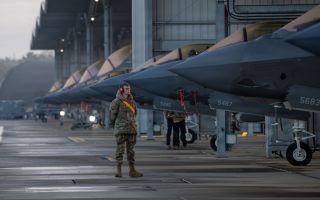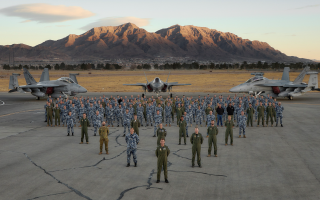Jets powered by algae: The RAF's green revolution driven by sustainable fuel
The RAF is pioneering a green revolution in military aviation by turning to innovative, sustainable fuel sources – including algae – to power its aircraft.
For the first time, RAF Lossiemouth in Scotland, one of the UK's busiest air bases, has integrated a blend of conventional jet fuel with sustainable aviation fuel (SAF) into its routine operations, marking a significant step towards a more sustainable future.
Apart from algae, sustainable fuel sources also include hydrogenated fats and oils, wood waste, alcohols, sugars, household waste and biomass.
- RAF making 'baby steps' in using sustainable fuel to solely power its fighter jets
- RAF Lossiemouth's flying club goes green as new electric aircraft takes off
- RAF's Poseidon, Globemaster and Chinook now cleared to use sustainable fuel
Between November 2023 and February 2024, the RAF received 4,000,000 litres of blended SAF through a contract with World Fuel Services, with an additional 5,150,000 litres scheduled for delivery from July to October 2024.
RAF Lossiemouth's fleet, including Typhoon fighter jets and Poseidon submarine hunters, are now being powered by these innovative fuel blends.
Aviation accounts for nearly two-thirds of fuel consumption across the defence sector and the use of blended SAF can cut aircraft carbon emissions by up to 80%.
"The use of sustainable aviation fuel represents a significant milestone in the RAF's journey towards helping mitigate against climate change," said Group Captain Sarah Brewin, Station Commander at RAF Lossiemouth.
"By integrating sustainable practices into our operations, we are not only enhancing our ability to protect the nation and deliver excellence on operations but also contributing to a more sustainable future for generations to come."
In November 2022, an RAF Voyager made history as the first wide-bodied military aircraft to successfully fly using 100% SAF.
The RAF's work in this area is helping to pave the way for the adoption of sustainable aviation fuels across the commercial sector, including a Government-funded transatlantic flight by Virgin Atlantic last year.









